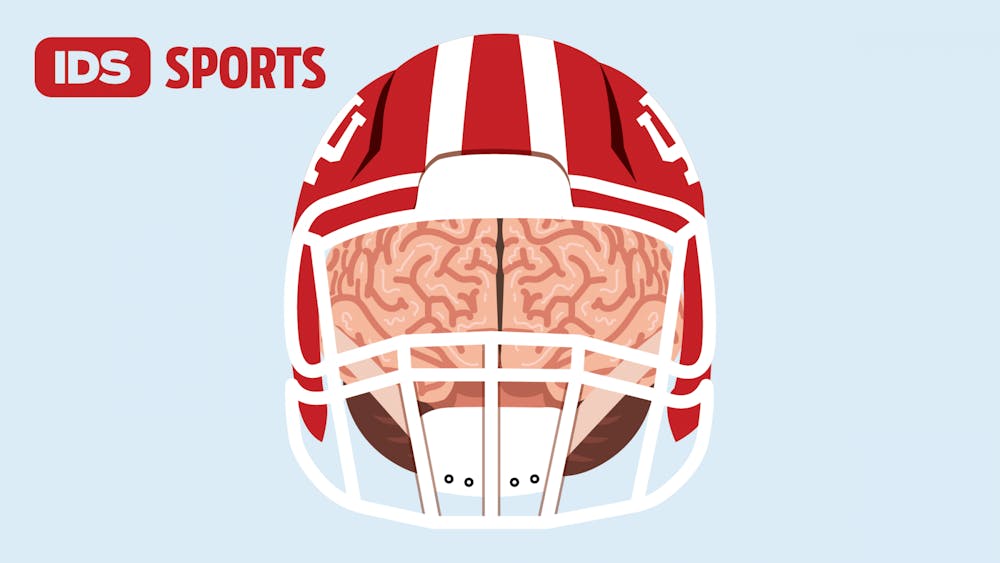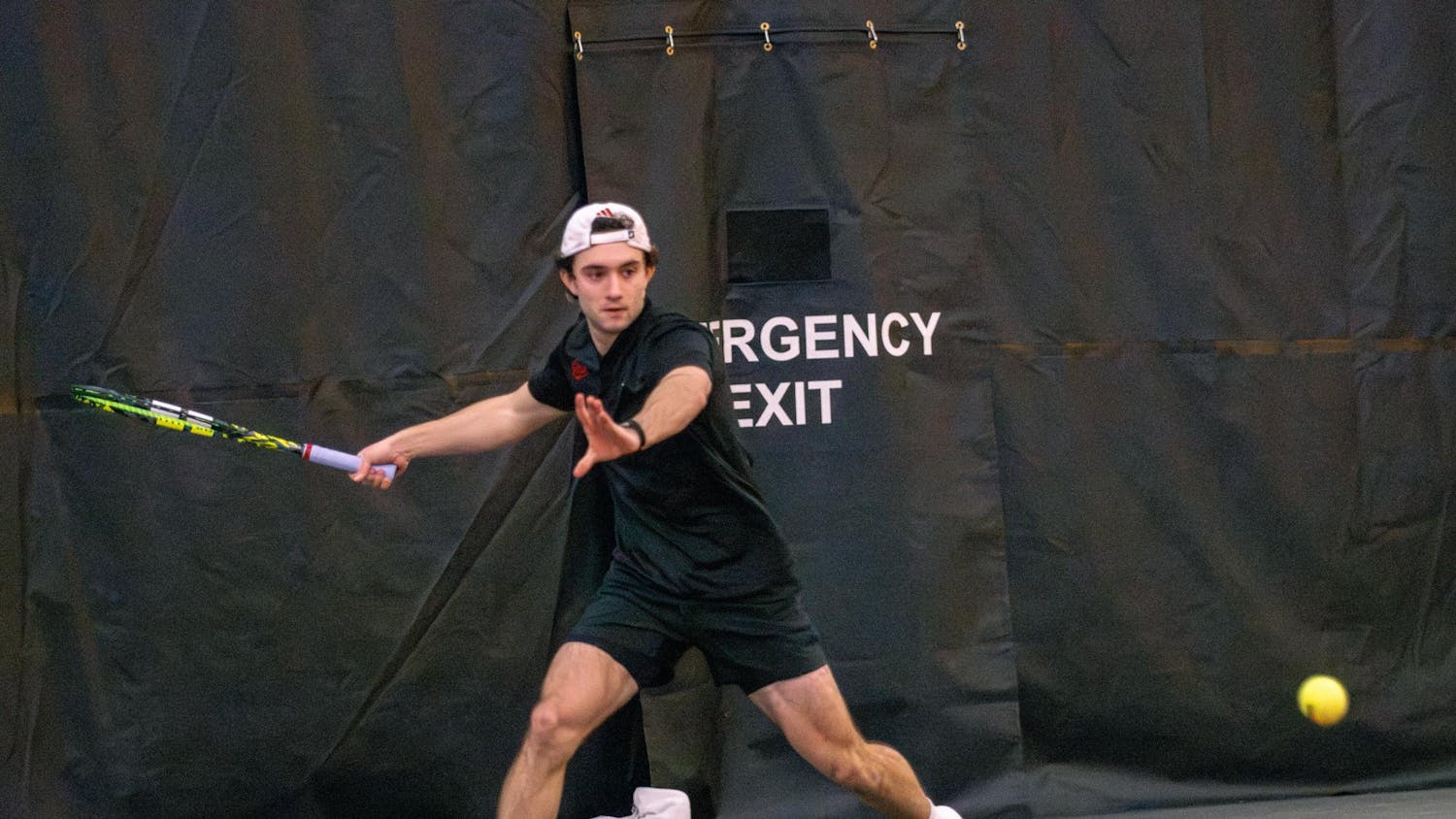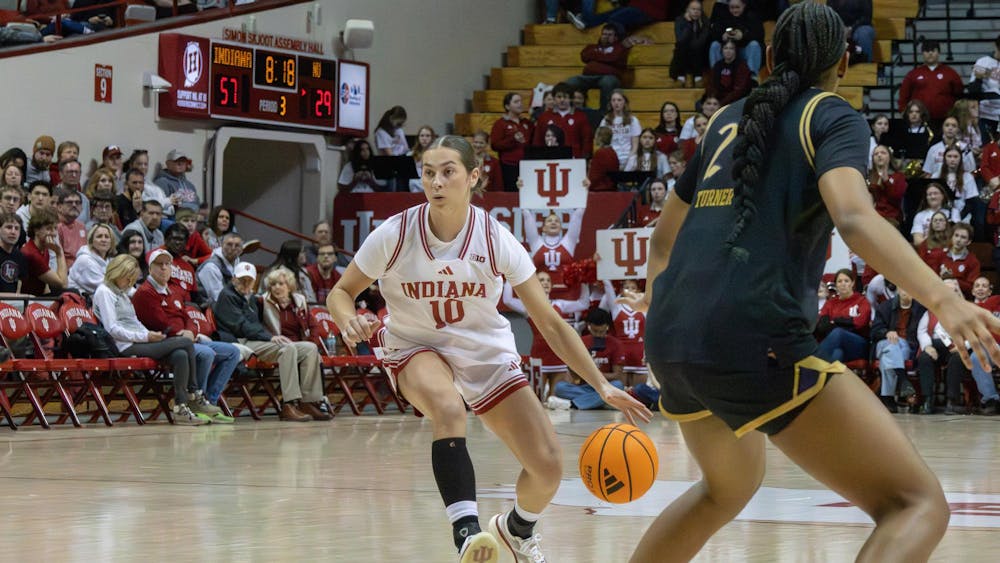Some of the biggest players in IU sports usually aren't found on the field or the bench on game days. Instead, IU’s sports psychologists are teaching students and athletes how to win the game off the court.
“The average person won’t know about this,” associate professor Jesse Steinfeldt said. “The work that’s being done behind the scenes with the athletes is preventing a lot more meltdowns.”
Steinfeldt works with graduate students and oversees IU’s psychology graduate program, ranked as one of the top programs nationally by U.S. News and World Report.
Steinfeldt said sports psychology is two overlapping spheres: performance enhancement and mental health. They each are separate ideas, but mental health can affect performance, and performance can affect mental health.
Troy Moles, IU’s director of counseling and sports psychology, said the program works on a continuum, ranging from athletes performing well on the field to athletes with an injury that’s taken an athlete out for the season. In the middle is everyday concerns — managing the stresses of being a Division I athlete or the stresses of their day-to-day lives.
Moles said sports psychologists assess athletes to find where they are on the continuum.
Moles, who works directly with IU athletics, is the head psychologist for IU. The school also has an athletic counselor, who works with athletes in a similar capacity, and a doctoral intern.
Steinfeldt said the treatment players receive depends on what they come in for.
“Often, a kid will come and knock on the door like, ‘hey Doc, I want to talk about performance stuff,’ because it’s safe,” Steinfeldt said. “Underneath that, holy crap, there’s some things that are happening.”
Steinfeldt graduated from Yale University in 1996, playing football, basketball and baseball while earning a bachelor’s in psychology.
“They told me I was the only person in the history of Yale to play all three of those sports,” Steinfeldt said.
After graduating from Yale, Steinfeldt’s agent found him a football contract in Norway with the Vålerenga Trolls. He went on to play football, basketball and baseball at the professional level in Europe for four years.
Sports psychology is ingrained into the culture of European sport. When Steinfeldt was playing sports in Norway, he said the normalization of a team psychologist made it easier to talk when things were going tough.
The psychologist is someone athletes can go to without feeling judged for their issues. Steinfeldt said athletes don’t want to talk to parents who will brush them off or to a coach who can write them out of the lineup.
“I don’t have a vested interest in them other than helping them be the best they can be,” Steinfeldt said.
In Europe, Steinfeldt said he would talk to psychologists about how to manage playing three sports professionally. He picked up strategies for self care and for managing his work-life balance.
Moles was a track athlete at Allegheny College in Meadville, Pennsylvania, and learned mental tricks to help with consistency that he later learned were part of sports psychology.
“When I was in college, I had never heard about sports psychology,” Moles said. “I didn’t know it was a field until after I graduated.”
The American Psychological Association created Div. 47, the Society for Sport, Exercise and Performance Psychology in 1986, but sports psychology research started in 1898 with a study on cyclists. The first practicing sports psychologist was hired by the Chicago Cubs in 1937.
Steinfeldt said the practice is still in the toddler phase in the United States. Last January, the power five conferences passed legislation requiring schools to make mental health resources available to student-athletes.
While programs are gaining momentum at the professional and collegiate levels, Steinfeldt said he thinks it will grow more at a lower level. Bloomington high schools have sports psychologist interns placed through IU, but few other high schools have them due to decreasing revenues and high demand for professionals.
Since high schools don’t have regular sports psychology programs, Moles said high school student-athletes are using private practices to refine their mental skills.
With the cancelation of spring sports due to COVID-19 earlier this year, student-athletes are facing new stresses regarding their futures. IU’s sports psychology program continues to help athletes through it.
“We’re still functioning,” Moles said. “We’re still doing our jobs.”
When sports psychology is embedded into the sport itself, Steinfeldt said the mental health stigma in sports can be erased, and the issue can be taken care of.
“It’s more proactive than reactive,” Steinfeildt said. “Reactive, you have to undo stuff to do stuff. Proactive, you are building relationships and putting things into place.”






